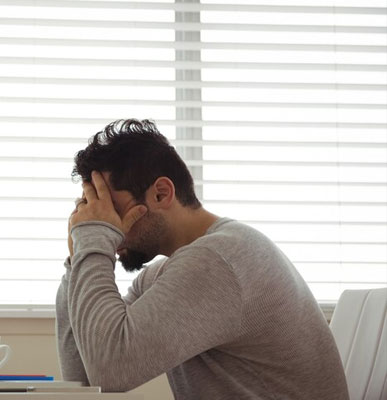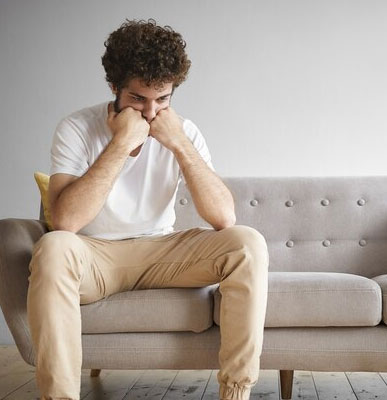- appointments@gurgaonclinics.com
- GMC- 194 P, Sector 27 Gurgaon, 122009
- Mon - Sat: 10:00 am - 7:00 pm
Visiting Hours
| Mon - Fri: | 8:00 am - 8:00 pm |
| Saturday: | 9:00 am - 6:00 pm |
| Sunday: | 9:00 am - 6:00 pm |
| Mon - Fri: | 8:00 am - 8:00 pm |
| Saturday: | 9:00 am - 6:00 pm |
| Sunday: | 9:00 am - 6:00 pm |
Anxiety is a very common condition and we have all experienced anxiety in some form of another when we have exams, interviews, etc. Anxiety disorders are found in 1 out of every 10 people.
Anxiety is described as experiencing fear when faced with difficult circumstances. The symptoms experienced can be varied and can range from sweating, palpitation (fast heart beat), fast breathing, shakes in hand, headaches, feeling the need to go to toilet more often, restless, feeling light headed (dizziness), nausea and feeling uncomfortable.
People can either experience anxiety in certain situations ( Social Anxiety) or it can be present at all times (Generalized Anxiety Disorder).
Panic is a form of extreme sudden anxiety which have all the symptoms of anxiety along with a feeling of loss of control and impending doom (death). Other very common symptoms in Panic are rigidity/spasm and bad posturing of hands (tetany) and feeling of numbness or pins and needles in fingers, toes and face.
Panic attacks usually come suddenly and the patient may not be in a difficult or threatening situation. Normally, patients complain of a feeling of having a heart attack and are usually rushed to Emergency rooms, where often they can get misdiagnosed as having a heart attack.
Onset of anxiety due to an intense fear of a situation or object which is usually non threatening. These could include-
Fear of Heights – Acrophobia
Fear of open spaces- Agoraphobia
Fear of closed spaces- Claustrophobia
There are several theories about why people develop anxiety disorders. It is found more common in children of people suffering from anxiety and depressive disorders. Being exposed to frightening or disturbing circumstances can also cause anxiety disorders. Difficulties experienced during childhood and use of drugs and heavy alcohol can also initiate or make anxiety more troublesome.
Some medical illnesses like thyroid or heart problems can also cause symptoms similar to anxiety and these should be ruled out with investigation and examination of patient.
Both psychological therapies and medication are well known treatments for anxiety disorders. In mild-moderate cases only psychological therapies can help but in severe cases generally a combination of therapy and medication is needed.
Usually your Psychiatrist will make a detailed assessment including the impact on your life because of anxiety. They may do certain blood tests to rule out other conditions that can present in a similar way to anxiety.
In terms of medication, anti depressants are the mainstay of treatment and the choice of antidepressant largely depends on the severity of your illness and the side effects profile.
In short term tranquilizers and low dose anti-psychotics may also be useful.
Self Help books are also available, which your Psychiatrist may be able to recommend.
Understanding of the illness is most useful and besides medication, patients usually do better with stress management, maintaining a good sleep cycle and healthy balanced life style.


